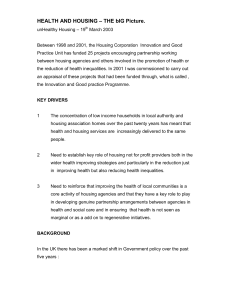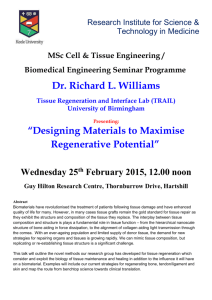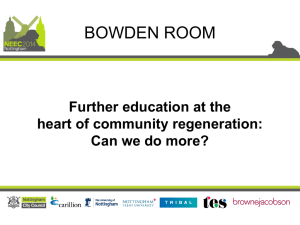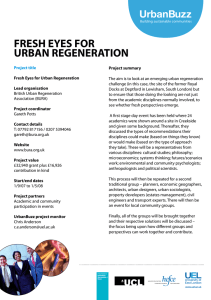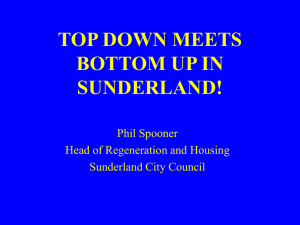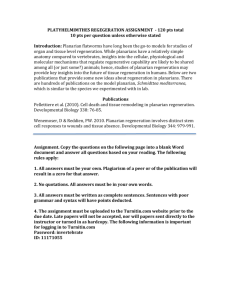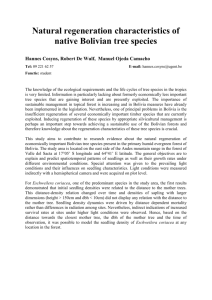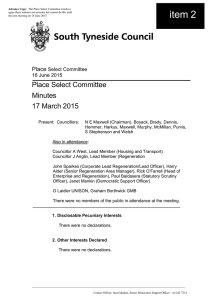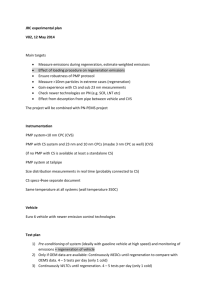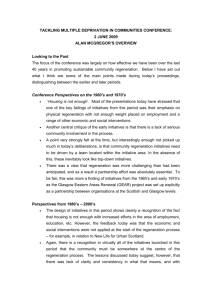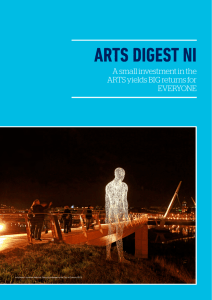Regenerating Local Spaces through Effective Community Planning
advertisement
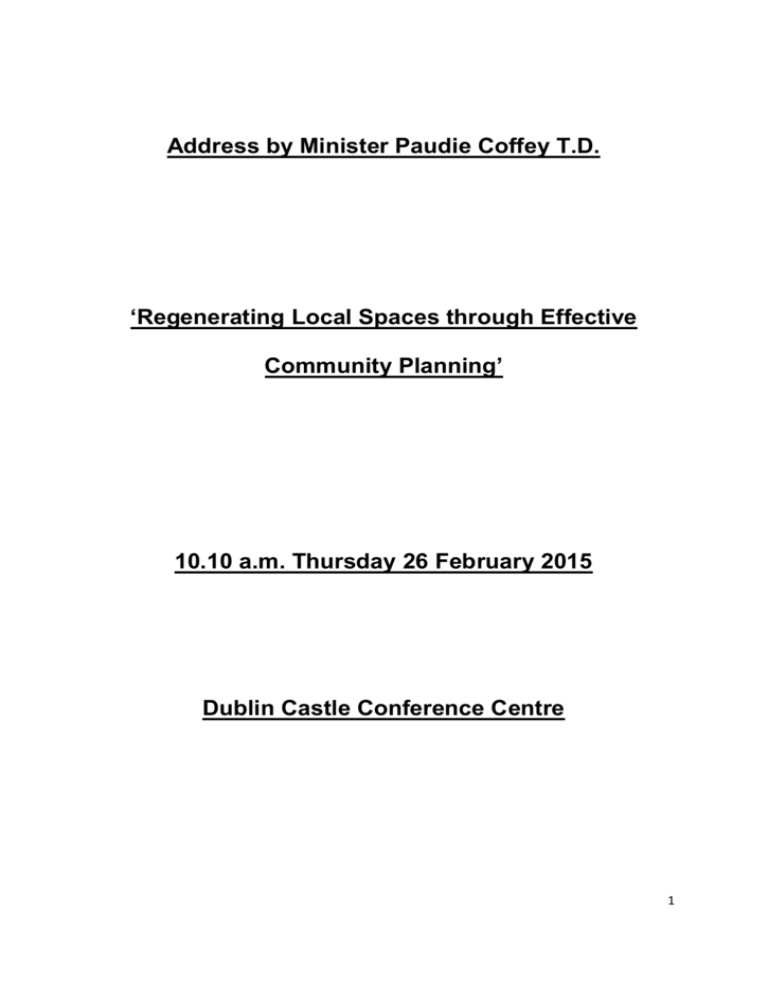
Address by Minister Paudie Coffey T.D. ‘Regenerating Local Spaces through Effective Community Planning’ 10.10 a.m. Thursday 26 February 2015 Dublin Castle Conference Centre 1 Deputy Secretary Mr Ian Maye, Mr Peter Sheridan, expert speakers, panel members, Chief Executive Officers, and invited guests. I’m delighted to welcome you to the historic surroundings of Dublin Castle this morning and I’d like to thank Co-operation Ireland for the opportunity to address today’s “Community Planning” seminar. This event is particularly timely given the changes we are currently undertaking, both North and South, in relation to community planning. Today’s event provides a great opportunity to exchange information and learn from each other as we move to the next phase of our respective planning processes. Indeed I’m pleased to say I’ll be travelling to Belfast tomorrow, to the equally historic surroundings of Belfast City Hall, to attend the Housing Awards 2015. This event is another fine example of North/South cooperation and is a celebration of the enormous contributions that organisations and individuals make to housing and communities on both sides of the border. 2 My colleagues in Government and I have a strong belief in the planning process and we’re investing a lot of effort in policy and legislative reform that will go a long way to the regeneration of local communities and to ensuring a greater focus on communities and development that is sustainable socially and economically as well as environmentally. My own Department is playing a major role in the redevelopment of areas of social and economic deprivation through the National Regeneration Programme. This programme supports an ambitious programme of regeneration at six locations nationwide, which includes a mix of large and small scale projects. These projects seek to deliver social, economic and physical regeneration with a strong community involvement in the process. As you know, regeneration is not just about physical investment. It is much more than this. Regeneration seeks to rebuild damaged communities by improving not just the physical environment in which people live but also by investing in the social and economic life of the areas. It is about rebuilding communities from the ground up – 3 making sure that they are places that people are proud to come from, places where people want to live and work in, rear and educate their children and to enjoy their later years in an inclusive and safe environment. Communities must have a say in the planning of their areas. The Government’s Action Programme for Effective Local Government particularly recognises the need for local government to build strong relationships with the local community. By improving citizen engagement in local government, decision-making will be better informed and strengthened. This is why the Government has established Local Community Development Committees in each local authority area and tasked them with developing Local Economic and Community Plans, using a ‘community planning’ approach in respect of the community elements of the Plans. The Committees have oversight and planning responsibility for local development and community programmes in their area. They are made up of stakeholders from local government, local development, State agencies and the community and voluntary 4 sector, and are focused on identifying the local and community development needs and priorities for their area. These priorities will be set out in Local Economic and Community Plans currently being developed and which will be ready by the end of this year. I hope to shortly publish arrangements for the preparation of a new National Planning Framework to succeed the National Spatial Strategy. This Framework will set the strategic agenda for planning in Ireland, taking account of our wider island, European and global contexts and co-ordinating policies and investment decisions in areas such as regional competitiveness, urban and rural development, transport, well-being and environmental quality. Both Minister Kelly and I have a shared vision in wanting the National Planning Framework to be new, to be different and to deliver sustainable development. The newly shaped Regional Assemblies will be preparing Regional Spatial and Economic Strategies, in tandem with the preparation of the National Planning Framework, to ensure that they will be effective 5 and followed through by all relevant public sector bodies, particularly those with responsibility for economic development and enterprise promotion. I think that you’ll agree that we are now on the cusp of a dynamic period of regeneration at all levels no more so than at local community level, as long as we get the planning aspects right. Local community planning is empowering and beneficial for communities throughout Ireland. There is a great sense of pride in one’s community and involving local inhabitants at a meaningful level can garner significant information and ideas that otherwise may have been overlooked. Community planning allows us to look at towns and villages through the eyes of the resident. My own home town of Portlaw was a planned industrial town and the home of a very successful cotton mill, with the industrial houses and social networks built as part of the planned town still forming a central part of the streetscape today. In fact I recently learned that following the development of Bessbrook in Northern Ireland, Portlaw 6 truss roofs were built into Bessbrook houses. Due to Portlaw’s rich historic heritage, a Conservation Plan was produced in 2003, which highlights the important aspects of Portlaw that can best be secured for the enrichment of the community. Let us remember therefore that planning is not just about process, it is about outcomes, for people, for their places. We need to keep planning clear and simple in its aims, understandable in its language and supported by the wider public, which means listening to local communities and focusing on what planning does best - building great quality places that people enjoy living in, working in and enjoying leisure time. I would like conclude by thanking you again for the opportunity to speak to you this morning and I wish you well in your discussions throughout the day. 7
